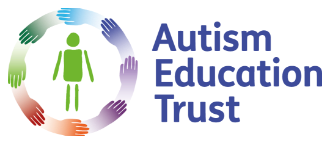Phonics
Phonics at Woodley School and College
Introduction
In January 2022, the DfE published ‘The Reading Framework’ which stated, ‘Schools are expected to enable access to appropriate phonics instruction for children with complex needs. Under the Equality Act 2010, they are required to make reasonable adjustments to enable pupils with disabilities to have full access to the curriculum and to be able to participate in it.’ This year (September 2022) we are responding to that as a school by prioritising our Phonics programme.
We are fully committed to developing within this area and have an important overview of the difficulties that some of our pupils have when attempting to learn in a structured way. The Reading Framework also states, ‘The wide range of learning difficulties experienced by children with identified special educational needs and disabilities (SEND) can have a significant impact on children’s and young people’s access to the curriculum.’ As a school we are constantly reviewing the impact and making small changes to make a greater impact on our pupils.
Additionally, the Rose Report (DfES 2006) directed teachers to teach literacy through synthetic phonics. However, it is suggested that this is “unlikely to be suitable for many children with SLD and may obscure the importance of teaching in alternative media” (Lacey et al, 2007). The Rose Report also recognises that synthetics phonics teaching in its conventional form will not be suitable for 8% of pupils. We aim to remove the barriers for our pupils to enable them to participate in phonics as fully as possible.
Phonics Scheme
As a result, at Woodley we teach phonics as appropriate to individual needs of pupils and we achieve this through using the DfE approved phonics scheme ‘Twinkl Phonics’.
The Twinkl Phonics scheme is a systematic, high-quality programme that guides pupils through six phases of phonological development, at a rate which can be adapted to meet appropriate individual needs.
Intent and Inclusive Practice
Our overarching aim is that every child has access to an inclusive and appropriate phonics curriculum that allows them to learn the phonetical code at their individual pace.
We also intend to:
- To equip children to become readers
- To equip the children to become effective spellers.
- To encourage children to see learning to spell as part of the process of learning to write.
- To understand word construction.
- To develop vocabulary and the ability to explore word.
- To apply phonic knowledge to reading and writing.
Due to the complexity of needs that our pupils have, any systematic phonics scheme has to be significantly adapted to allow for inclusive practice. We maintain fidelity to the scheme as far as possible, and our phonics training focusses on the skills and knowledge needed to deliver the Twinkl programme.
We have developed guidance for teachers on how to be able to take an inclusive approach to the teaching of phonics in our school. This guidance gives instruction on how to implement phonics instruction with pupils who have specific needs, for example, are non-verbal.
Engagement Model
Many of our pupils are working within the ‘Engagement Model’ assessments to provide a holistic overview of their achievements. The Engagement Model ‘recognises there is a complex interaction between pupils’ physical, sensory, communication and learning disabilities that affects how they progress.’
Pupils working within the Engagement Model are assessed in 5 areas:
- exploration
- realisation
- anticipation
- persistence
- initiation
As these children may be working within on non-subject specific curriculum, we allow them to experiment with sound play and phonetical learning at their own level, which will be tailored to their ability to sustain concentration.
Other Strategies
In addition, the following strategies are used to support early phonological awareness:
- Communication sessions with pupils may incorporate intensive interaction sessions, usually beginning with the pupil initiating communication (either through verbalisation or movement) which an adult mimic to encourage understanding of two-way conversations. These sessions contribute to the development of early literacy skills.
- Pupils are encouraged to ‘play’ with sounds to encouraging vocalisations.
- Photographs/pictures of activities and events are a useful tool. Pictures can totally capture the attention of very young children and our pupils and teach the skill of extracting meaning from illustrations to help them make sense of the text. This continues to be used by our pupils as we read stories to them and is an important skill for those who are not going to read or write conventionally.
- Many pupils will read symbols. Symbols are important in supporting communication and reading skills. They are also used for timetables, sequencing skills such as dressing.
Other Curriculum Pathways
Our more able pupils are able to access phonics teaching in a more conventional way. The ability range in each class is wide and therefore the delivery of the phonics session in each room may be organised differently. Phonics is taught discretely and this may be delivered through whole class teaching, small group teaching or a 1:1 session.
Progress in developing and applying phonic knowledge is assessed carefully, using a termly phonics assessment, and monitored. Data analysis is then conducted by the phonics lead, which is discussed in pupil progress meetings.
Matched Reading Scheme
All pupils have access to a reading book that is closely matched to their learning in phonics. We achieve this by making the relevant books for the learning stage clear on our planning documentation. We use Twinkl’s reading scheme ‘Rhino Readers’, and our pupils have access to both printed form and the digital book through an app on their iPad. These books can also be sent home electronically, so they can be shared with pupils.
Phonics After Primary Age
All of our pupils from 4-16 are given a discrete phonics session daily.

